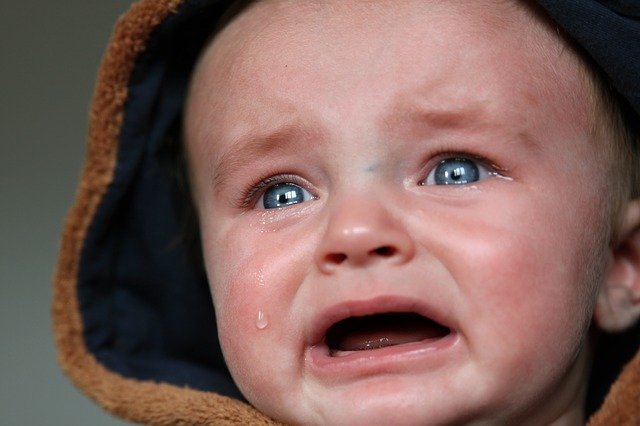After having direct involvement with many reactive attachment disorder (RAD) sufferers – adults and children alike – Shivonne Costa, a local social worker, mother of two adopted children with RAD, and advocate to see social service laws change, is trying to fix misconceptions and share information about the avoidable disorder that she says is becoming increasingly more common.
According to PersonalityResearch.org, reactive attachment disorder (RAD) is one of the few disorders listed in the DSM-IV that can be applied to infants. It is a disorder caused by a lack of attachment to any specific caregiver at an early age, and results in an inability for the child to form normal, loving relationships with others.
Costa says that RAD affects children specifically in their baby and toddler ages, and happens as a result of not receiving the crucial attention they need or from being exposed to traumatic experiences, causing extremely important parts of the brain to never develop.
“If you do an MRI on someone with RAD, areas of the brain that should be lit up, like the relationship and emotion forming parts of the brain, will just remain completely grey,” Costa said. “People and children with RAD have a very hard time functioning properly in society, often they will be destructive, unemotional, and violent, and it’s nearly impossible to reverse the damage even after they have been placed with a loving and caring adoptive family. That’s why it’s so important to intervene with children exposed to abusive environments before it’s too late.”
Because the development of RAD occurs between birth and three years of age, due to the current social service laws and because most adoptive families have a difficult time trying adopt a child from foster care before age 3, it’s extremely hard for children to get the help they need before the life-long damage occurs.
“Without taking children out of these toxic environments early enough the problem perpetuates; when they grow up they’re going to have the same bad habits and behaviors as what they grew up learning was normal and of course any children they have will be exposed to the same, and so on,” Costa said and further stated her extreme disappointment with current social service laws, many of which haven’t been changed since the 1960’s.
She has taken her concerns to local and state officials many times, to no avail, but that doesn’t stop her from persevering. In the meantime, her goal is to bring awareness to not only the disorder, but to the current social service laws while also hosting support groups for parents of children struggling with RAD.
Costa is so passionate about RAD that she wrote a book about her experiences raising children with the disorder. “The Children Who Raised Me” is her book which is available for order through Tate Publishing, and it will be in select stores on Valentines Day.
Costa offers additional RAD support services along with a blog and personal contact information on her website, and she encourages anyone who is also passionate about social service changes to reach out.


This is not RAD. Ms. Costa is really talking about an unrecognized diagnosis called “Attachment Disorder,” or AD. It is a quack diagnosis that has been denounced by the American Psychological Association and APSAC.
http://www.childrenintherapy.org/attachmentdisorder.html
RAD is, in fact, a very real disorder and is currently in the DSM-V (http://www.mayoclinic.org/diseases-conditions/reactive-attachment-disorder/basics/tests-diagnosis/CON-20032126). And all the attachment therapists and psychiatrists that work with the disorder regularly would beg to differ with you.
Additionally, I was talking about RAD, not AD. Many of the behaviors seen in RAD that are listed in the AD diagnosis you mentioned are the same, however, due to the lack of emotion and social connections in RAD children. However, AD is often the term used to describe both forms of RAD (inhibited and disinhibited).
Thanks Shivonne for all of your hard work advocating for this! Always enjoy reading your blog.
Yes, RAD is an actual disorder, but nothing near how you describe it.
For the recognized definition of RAD, people consult with the APA’s “DSM-5”:
http://www.cebc4cw.org/search/topic-areas/dsm-5-criteria-for-reactive-attachment-disorder-rad/
Claiming RAD includes features that include “destructive” and “violent” is plain wrong and conceptually is at odds with RAD.
You are describing the unvalidated diagnosis AD, which is the invention of a highly abusive practice called “Attachment Therapy” (aka Holding Therapy, Rage Reduction, Compression Therapy, Rebirthing, Holding-Nurturing Process, Nancy Thomas parenting, etc.)
http://www.childrenintherapy.org/essays/index.html
This practice has been linked to many high profile criminal child abuse and death cases.
http://www.childrenintherapy.org/victims/victims.html
APSAC and APA recommend that child welfare workers investigate where Attachment Therapy, its highly authoritarian parenting, or the bogus AD (“RAD”) diagnosis is use.
Can children be violent and destructive? Of course. But they don’t have RAD. The first step in getting children the help they need is an accurate diagnosis.
Linda, attachment therapies have a huge range of services – many of which i disagree with. However RAD DOES have behaviors as I’ve described. Anyone interested is free to do the research, as there is a vast amount. But I have a feeling we won’t come to an agreement on it, and that’s ok. I encourage people to read, study, and support families struggling with RAD and other significant mental health disorders.